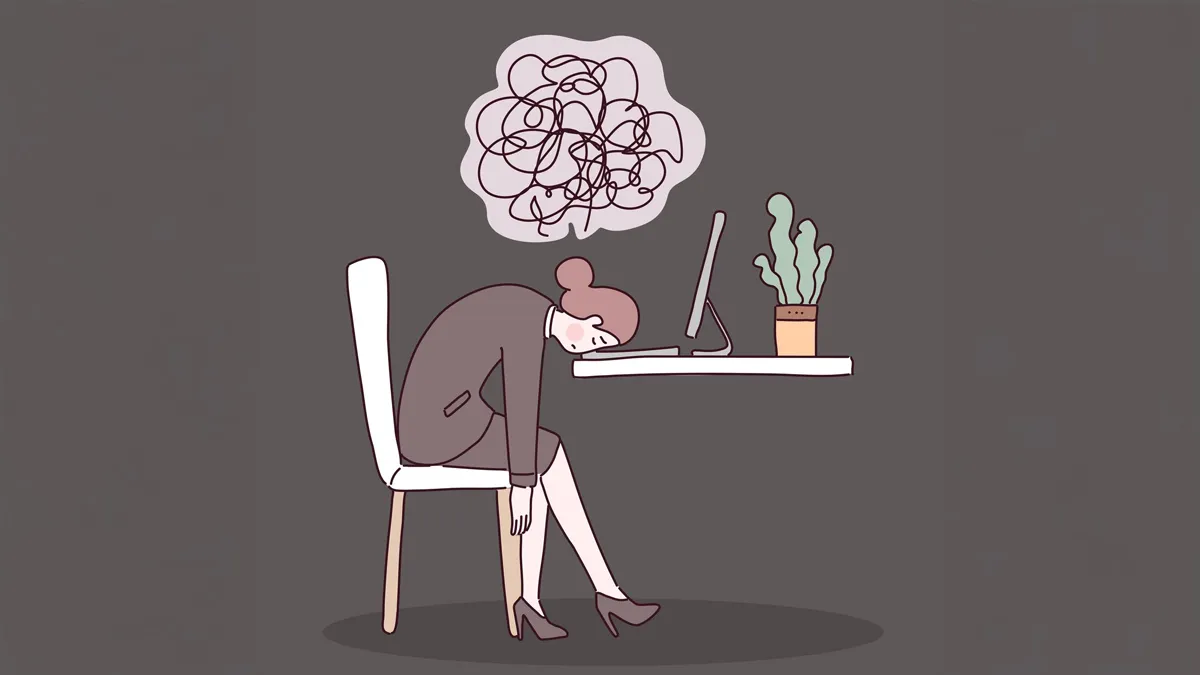
Mental burnout and brain fog are issues that are becoming more common and limiting cognitive functioning and well-being. Some common symptoms of brain fog and mental burnout include concentration issues, forgetfulness, confusion, slow reaction times, and losing one's train of thought. Those who are affected often face difficulty in conversations or remembering the step-by-step process of completing a task.
Table of Content:-
CHECK YOUR
MENTAL HEALTH

We spoke to Dr Aditya Kulkarni, Consultant - Neurology, Manipal Hospital, Sarjapur Road, Bengaluru, who explained brain fog and burnout and how you can differentiate between the two.
Causes Of Brain Fog And Burnout

There are various factors contributing to brain fog and burnout. The way one leads their life, such as not getting enough sleep and dealing with chronic mental stress, will be one of the main culprits.
“In addition to those, side effects from medication and hormonal changes can worsen cognitive cloudiness. Undeniably, medical and neurological conditions, such as dementia, stroke and brain tumours, may also cause brain fog, but will still require an evaluation by a physician. Mental health conditions, such as anxiety and depression, are normally the most prevalent in their role in encountering cognitive difficulties,” added Dr Kulkarni.
Also Read: Can Brain Fog Lead To Poor Gut Health? Expert Shares Warning Signs
Brain Fog or Burnout? How to Tell the Difference
“Brain fog is more about mental cloudiness. You might feel like you cannot think clearly, have trouble remembering what just happened, or feel mentally slow. It is more of a symptom than a condition itself and may appear due to poor sleep, stress, medications, or hormonal shifts,” explained Dr Kulkarni.
“Burnout, on the other hand, is a state of emotional, mental, and often physical exhaustion, brought on by prolonged stress, usually work-related. If you are experiencing burnout, you may feel detached, unmotivated, irritable, or overwhelmed, often alongside brain fog,” he added.
Spotting the Signs: What You May Notice
Identifying the symptoms of brain fog is crucial for recovery. People may find concentrating on a particular task challenging, have trouble remembering things that have just transpired, or feel sluggish. The symptoms of brain fog can lower productivity, especially if it is associated with an underlying medical condition or psychological issue.
Also Read: The Silent Thyroid Crisis: How Chronic Stress or Burnout is Fueling Thyroid Surge in Women
How To Manage Brain Fog And Burnout
- Lifestyle changes are the foundation of treatment. Getting our sleep schedule on track is vital. Sufficient sleep helps promote mental clarity and gives emotional resilience.
- Following through with stress-reduction activities, such as mindfulness practices, can be key to reducing mental fatigue.
- Taking more breaks while working will help structure focus and load on the brain. The most important thing is that these interventions will help one regain mental clarity and improve quality of life.
If the brain fog is a result of anxiety or depression, medical treatment could be an important part of the solution. For some people, medication for anxiety or depression can be helpful. Seeking advice from a registered health care professional will help determine if medication is an option, particularly when symptoms persist or intensify. It is also essential to rule out differential diagnoses related to neurological causes, such as dementia or a stroke, especially if there are risk factors or progressive symptoms.
How To Prevent Brain Fog And Burnout
Dr Kulkarni advised, “To prevent burnout and brain fog, it is crucial to take a holistic approach. Taking care of oneself with an overall balanced lifestyle, along with addressing root causes (stressors, lack of sleep, mental health), can bring back clarity of thinking and help prevent burnout. If your brain fog is consistent, consult a neurologist or a mental health professional to help understand the cause of your brain fog. Using the right tools will allow you to move past your brain fog and help to improve your mental wellness and productivity.”
[Disclaimer: This article contains information provided by an expert and is for informational purposes only. Hence, we advise you to consult your professional if you are dealing with any health issue to avoid complications.]
Also watch this video
How we keep this article up to date:
We work with experts and keep a close eye on the latest in health and wellness. Whenever there is a new research or helpful information, we update our articles with accurate and useful advice.
Current Version